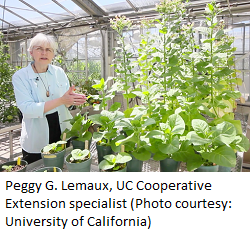According to recent study by FAPRI-MU higher biofuel blending requirements through the Renewable Fuel Standard (RFS) increase the incentives to use higher biofuel blends, as seen by high Renewable Identification Number (RIN) prices so far this year. The study began with baseline projections for biofuel and agricultural markets and then built on a series of assumptions about how the RFS will be implemented and how market participants will respond.
 One key question of the study: what will happen when the RFS requires greater levels of biofuel use than can be achieved with 10 percent ethanol blends and mandated levels of biodiesel use?
One key question of the study: what will happen when the RFS requires greater levels of biofuel use than can be achieved with 10 percent ethanol blends and mandated levels of biodiesel use?
The baseline assumes that domestic ethanol use will exceed the 10-percent “blend wall” if the effective cost of ethanol to blenders and fuel consumers drops low enough, long enough to encourage the use of higher-level blends such as E85 and E15; yet, how low and how long. The baseline assumes that use of these higher-level blends will only increase significantly if the consumer-level cost of these fuels is at a slight discount to conventional fuels, even after taking into account the lower energy value of ethanol-blended fuels.
The report looked at these questions from different perspectives using alternative assumptions about the implementation of the RFS and the behavior of biofuel market participants:
1. The first section calculates hypothetical RIN prices that would cover costs and discounts necessary to encourage expanded use of E85. Under one set of assumptions, the implied RIN values are very close to those recently observed in the market, but plausible changes in assumptions yield estimates that range from $0.28 to $2.34 per gallon.
2. The second section examines a scenario that assumes ethanol-blended fuel must sell at a deeper discount to conventional gasoline to encourage use of high-level blends—a somewhat steeper blend wall. This scenario results in less ethanol use than in the baseline, higher RIN prices, and increased use of biodiesel. However, the changes in quantities produced and consumed are fairly modest, so long as there remains a price that can encourage increased use of higher-level blends.
3. The third section explores the implications of alternative RFS implementation strategies and how they interact with alternative assumptions about the steepness of the blend wall. All else equal, the greater the total and advanced biofuel mandates, the greater the value of RINs and the greater the use of biodiesel. A steeper blend wall also results in greater RIN values and biodiesel use. Several different scenarios result in fairly similar levels of use of corn ethanol in 2013/14, provided that mandates are enforced.
4. The final section explores an extreme scenario where there is no price that will induce the use of higher-level ethanol blends. If the RFS remains in place, such a scenario would require large increases in biodiesel use that would require very high RIN prices and result in large increases in vegetable oil prices. Such RIN and biodiesel prices could induce new renewable fuels or trade patterns, and might be inconsistent with the view that ethanol expansion is impossible.
 One of the big issues that continues to dog the biofuels business, especially ethanol production, is the use of food crops as fuel sources. While many have made the case that the crops can provide both food AND fuel (consider the dried distillers grains from ethanol production, for example), a New Jersey-based company thinks it has a way to remove the food part from the debate altogether.
One of the big issues that continues to dog the biofuels business, especially ethanol production, is the use of food crops as fuel sources. While many have made the case that the crops can provide both food AND fuel (consider the dried distillers grains from ethanol production, for example), a New Jersey-based company thinks it has a way to remove the food part from the debate altogether. In this edition of the Domestic Fuel Cast, we talk to Kef Kasdin, CEO of Proterro, as she tells us about her company’s method of actually creating, not extracting, sugars. You’ll be able to hear how this process makes sugar for as low as 5 cents/pound… a pretty good bargain compared to 10-20 cents/pound of more conventional methods.
In this edition of the Domestic Fuel Cast, we talk to Kef Kasdin, CEO of Proterro, as she tells us about her company’s method of actually creating, not extracting, sugars. You’ll be able to hear how this process makes sugar for as low as 5 cents/pound… a pretty good bargain compared to 10-20 cents/pound of more conventional methods.














